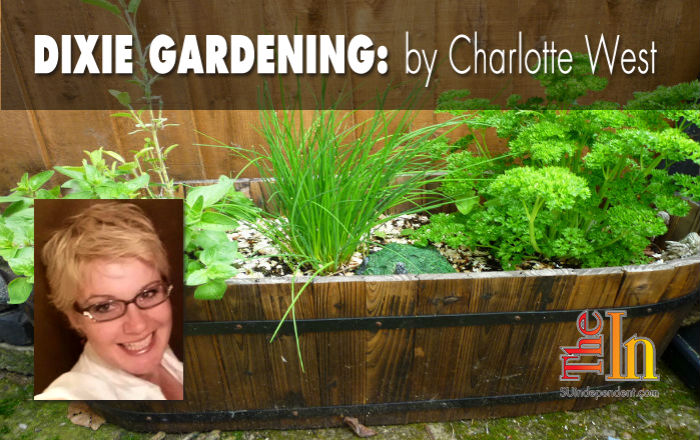As we rethink our relationship with the environment, many are rediscovering the beauty and bounty that nature provides. And what better way to do that than with an herb garden. Herb gardens are glorious because they can be as large as your imagination and yard will allow, or as simple and functional as the containers you choose to put them in. Even your smallest apartment can house an herb oasis. Here are some of my favorite herbs.
Basil, not only for its yummy varieties and earthy scent, but Basil can make a grand statement with its many colors in your garden. It is one of the easiest herbs to grow, making a great addition to any existing flower or vegetable garden. The seeds can be sown directly in the ground after the danger of a hard frost has passed. Plant the seeds about ¼ inch deep and about 12 inches apart. This herb likes a soil rich in rotted compost or manure. And if you plant it with your tomatoes it will help enhance their flavor. So besides it’s grand visual statement you can not go wrong with Basil’s elegant and aromatic contributions to your garden.
Calendula on the other hand is not always thought of as an herb, but this “ Sun Herb” opens its petals when the sun appears and closes them at sunset. This is a hardy annual plant. It has a somewhat bushy habit, but can also be leggy unless periodically pinched back. You will find this is a forgiving plant to grow. I recommend this plant not only for it’s show stopping beauty but it’s petals can be a substitute for expensive saffron often used in Spanish and Indian dishes. Plus you can enjoy Calendula’s added benefit of a natural insect repellant.
And Dill. Make sure to add Dill in your garden. This herb not only acts as a beautiful backdrop plant, but it has endless possibilities in soups, meats, salads, and pickles. Plus, it’s easy to cultivate. Dill enjoys loose, fairly rich soil and full sun. And with its feathery, fern-like leaves, makes a whimsical addition to your garden.
Or try Dill’s relative Fennel. Besides being able to eat the stalks, it’s flowers produce wonderful aromatic seeds. Beware however, to keep Fennel away from your bush bean or tomatoes. This herb is one kitchen fundamental. Delicious in salads, soups, stews, and a great accompaniment to fish and pasta dishes.You will enjoy this sweet herb guaranteed.
Parsley is one herb that is known for it’s cooking versatility. In some parts of the world it grows wild. It’s leaves are the part harvested. Flourishing in a rich, evenly kept and moist soil you can benefit from this powerhouse of herbs. Furthermore, how can you go wrong with an herb containing Vitamin A, C, Calcium, Thiamin, Riboflavin, and Niacin? So make sure not to leave out this amazing herb.
Lastly let’s not overlook Lemon Balm. It is among one of the most fragrant of herbs. It is a hardy member of the Mint family and grows in beautiful mounds. When it’s leaves are crushed it releases a lemony fragrance. Just sniffing the leaves can be therapeutic in itself. Lemon Balm can be strewn around your home to provide a clean fresh atmosphere. And is favored in many potpourri blends. It spreads slower than other mints and can be easily controlled.
You could make a list a mile long of herbs. But these are a few of my favorites. Start by imagining yourself walking through a backyard flower or vegetable garden taking in all the variety of fragrances that surround you. Everybody’s tastes and sense of delight is different. Carefully choose each plant before buying keeping in mind a particular affinity and association. Let your imagination run wild. And come summer, your herb garden will reveal it’s full blown brilliance.
May your herb garden be not only laborious but glorious.
Charlotte West moved to southern Utah in 2004 from the farmlands of southern Arkansas, where cultivating the earth is a way of life. Her experiences give her a unique perspective on how plants grow, adapt, and survive in different climates. She finds great joy in sharing her knowledge with others and tending to her garden. From seedlings to 70-year-old elms, she can help you with your horticulture needs.
Follow The Independent on Facebook Google+ Twitter Instagram Tumblr LinkedIn




